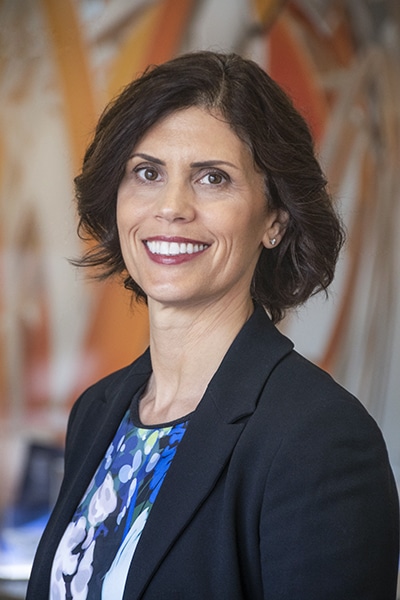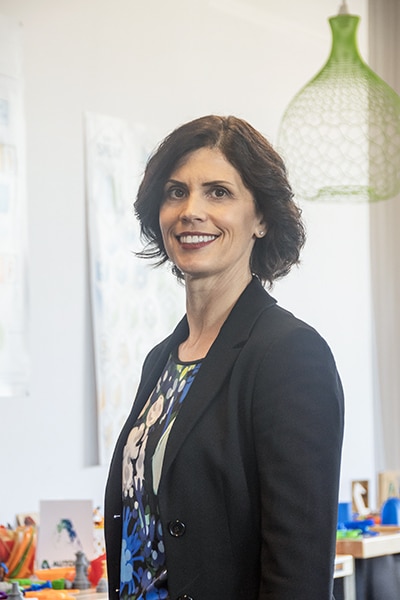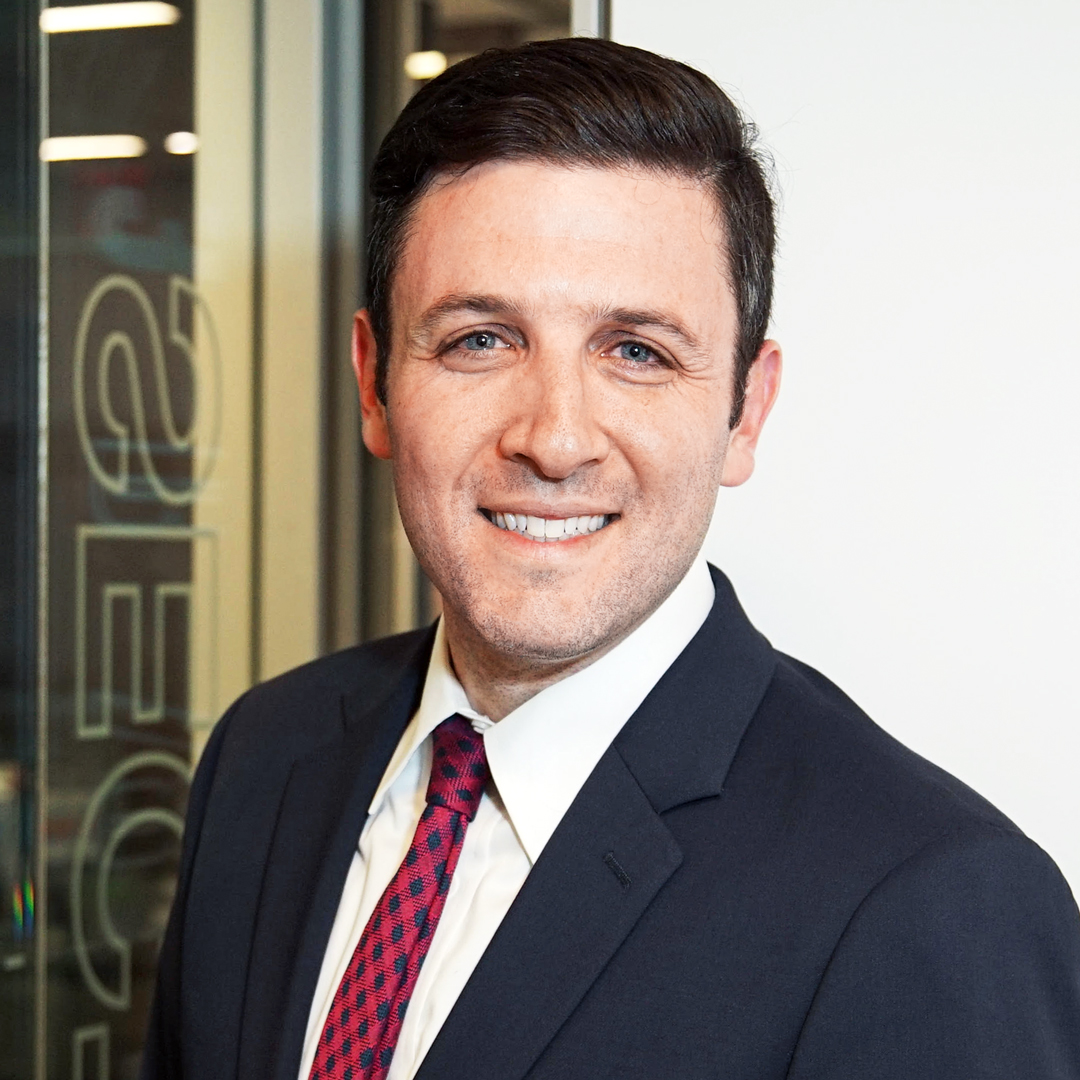Midconversation, it’s easy to forget that Jennifer Daehler Jones is an attorney at all. It’s a point that she herself makes halfway through explaining the complexities of hypothetically attempting to establish who will have claim to IP if artificial intelligence goes on to create an actual product for a customer of Autodesk, the software company where Daehler Jones has worked for the past thirteen years, most recently as director and senior IP counsel.
What may have been a question relegated to science fiction in the last century is an all too real possibility in the future and a point of passion for the attorney. It’s allowed her to dive deeply into areas most often populated by software developers, project engineers, and think tank philosophers, but it’s part of the IP counsel’s day to day at the multinational company, which creates software for the architecture, engineering, construction, manufacturing, media, education, and entertainment industries.

Daehler Jones says part of the reason she has stayed at Autodesk for more than a dozen years is that underneath every new rock of innovation the company unearths is an entire ecosystem of complex head-scratchers, ranging from the practical to the future of work and what can occasionally sound like the plot of a sci-fi film (ironic, given that most sci-fi films today leverage Autodesk’s software services).
The attorney didn’t initially set out to spend so much time pondering the questions of tomorrow. “I started my career in litigation, and that in itself was a little accidental,” Daehler Jones says. “Like many lawyers coming out of law school, I took a job that seemed the most interesting and would offer me the ability to learn and grow.” While she didn’t wind up pursuing litigation as a career, the exposure to IP litigation would be incredibly valuable for the lawyer in coming to Autodesk.
“My prior experience gave me such a grounding in how your best intentions can wind up coming back to haunt you in ways you never anticipated,” Daehler Jones laughs. The young lawyer also spent time at a California-based firm doing tech transactional work that would translate well to Autodesk. “I had the good fortune to be working under a partner who really became my mentor,” Daehler Jones says. “Some of the foundational lessons she gave me I still use all the time—things like really knowing your client and working to understand their day to day.”
Coming to Autodesk would provide Daehler Jones with a wide array of challenges that went way beyond the scope of a firm lawyer turned in-house counsel. The highly technical, specialized, and cutting-edge nature of Autodesk’s business required the in-house attorney to develop strong engineering relationships outside of the legal department.
“Autodesk’s robust IP portfolios require me to leverage the expertise of our senior technology leaders as well as our patent committee, which is made up of select and senior architects and senior engineering leaders,” Daehler Jones says. “Making sure that we’re thinking hard about the best way to protect those intellectual property assets, whether through patents, publishing white papers, or through protecting something as secret, all comes down to developing and maintaining those important relationships.”
Fortunately, in enlisting Daehler Jones’s own skill set, Autodesk inherited not only the lawyer’s passion for traditional IP matters but also a wide-ranging curiosity that helps ensure legal isn’t just up to speed with the business; it’s actively pursuing the legal future of Autodesk’s most forward-thinking products. While the lawyer insists that it’s only a small component of her wide breadth of responsibilities, Daehler Jones is able to speak on issues like open-source software (OSS) with a level of credibility that seems well outside the traditional legal lanes. The director says companies that understand the value and opportunities of OSS to fuel proprietary software and form a backbone for common protocols will be able to focus more on what competitively differentiates them. “OSS can become a platform that raises all boats,” Daehler Jones says.

The rub, the director underscores, is that those same companies have to nurture and contribute to OSS to continue to drive innovation. “This is an amazing opportunity for everyone involved, as long as the same companies who are utilizing these OSS packages are helping drive that technology and move it forward,” Daehler Jones says.
In spurring innovation, Daehler Jones says legal must also stay abreast of AI and machine learning technologies as they continue to provide new and complex ripples for IP matters. “What happens when we imbue our products with enough machine learning and AI that the products themselves become a designer, and what does that mean for IP rights for our customers?” the lawyer asks. “It’s a fascinating topic, and one that the business is very interested in as well.”
Daehler Jones admits that it might sound strange for the lawyer in the room to be talking about software strategy or the benefits of OSS, but she says it’s a result of Autodesk’s collaborative and highly interactive relationship with its legal function.
“At its best here, I feel like I’m able to lead the business on legal topics that can help them create a competitive edge or differentiation,” Daehler Jones says. “When we’ve added a concept or an idea to the overall lexicon of company strategy, it’s a really fantastic moment.”
***
Morrison & Foerster LLP:
“Jennifer adeptly balances legal acumen with commercial perspective, ensuring the IP counsel function serves to drive Autodesk’s business forward. She’s an outstanding lawyer, and we’re privileged to work with her.”
–William Schwartz, Partner
***
Donahue Fitzgerald LLP:
“Jennifer is a highly intelligent, pragmatic, and strategic intellectual property attorney. Her integrity, genuine kindness, and professionalism make it an absolute joy to provide her with support as outside counsel.”
–Jonathan Osder, Partner


